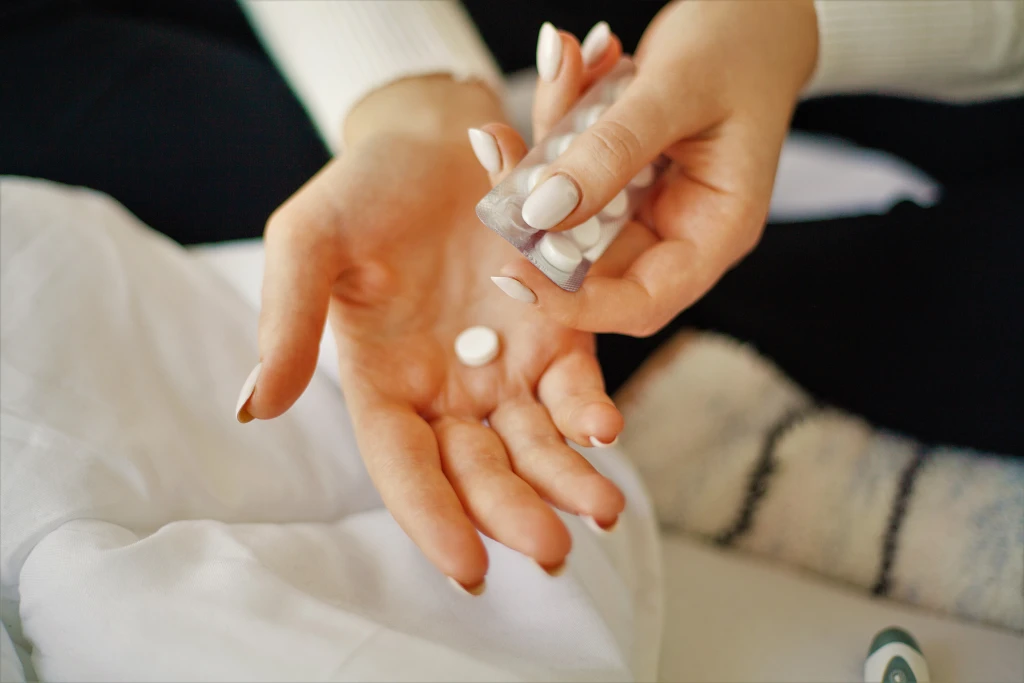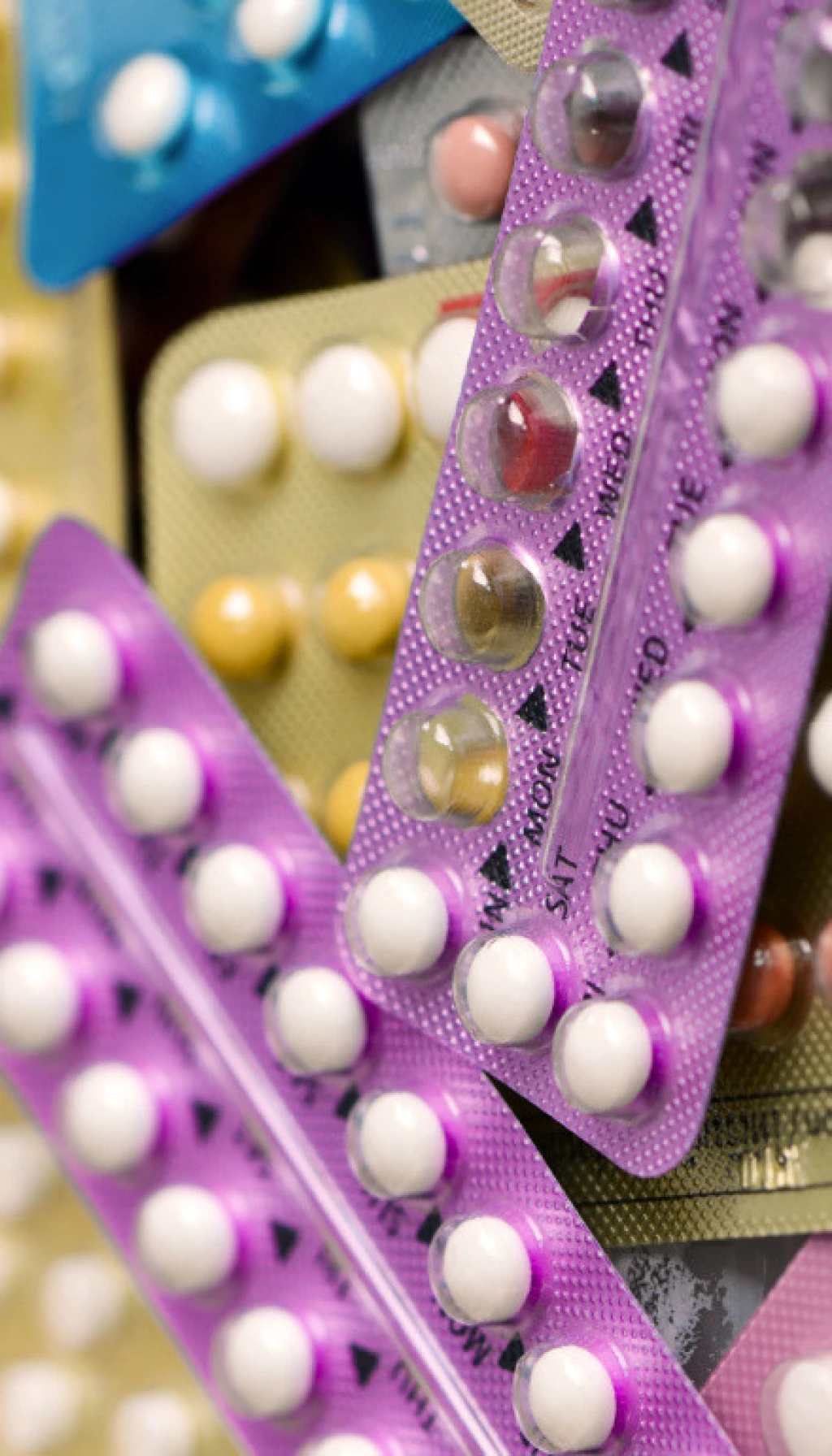
Non-steroidal anti-inflammatory options
Your GP may prescribe you non-steroidal anti-inflammatory drugs (NSAIDs) either to be used alone or at the same time as hormone treatments. These painkillers are first-line treatments that are commonly used by individuals with endometriosis symptoms because many are available over the counter. They work by blocking the pain signals before they reach the brain. Examples include ibuprofen, aspirin, and naproxen.
Paracetamol is not considered an NSAID but can still be used for mild pain.

Non-surgical hormonal options
The most common treatments that your doctor may recommend are typically hormone treatments. Endometriosis tissue is affected by hormones in the same way as endometrial tissue in the uterus.
Two of these hormones are oestrogen and progesterone, and they control your menstrual cycle. As they naturally fluctuate throughout the menstrual cycle, their rise and fall can aggravate symptoms or cause endometriosis flare-ups. Hormonal treatments help to regulate, slow down, or stop their production.
Certain hormonal treatments are designed to put the patient into an artificial menopause state. This is temporary, meaning that when you stop the hormone treatment, your period will return. Currently data shows that one drug is not superior to another, so if you experience unwanted side effects with one, your GP can switch you to a different drug.
All hormonal therapies can affect your ability to get pregnant, whilst you are taking them, so it is not for everyone. Hormonal therapy can take approximately 3-6 months for a noticeable change in endometriosis symptoms to occur, but if you feel like it isn’t working for you or doesn’t suit you, you can ask your doctor to prescribe a different option.

Neuromodulator drugs
NICE guidelines state that if patients over 18 years are experiencing chronic primary pain (defined as pain that lasts over 3 months), their GP can prescribe neuromodulators after they discuss the benefits and harms. These include anti-depressants, selective serotonin inhibitors, or anticonvulsants. Neuromodulators work by treating neuropathic pain (pain caused by lesions or damage to the nervous system).
They block the pain signals sent to the brain, and are effective in 50-60% of patients who have chronic primary pain. For patients with endometriosis, there is not much clinical evidence to support using anti-depressants as the first option for pain during endometriosis. One study showed that although patients taking anti-depressants and GnRH drugs did exhibit less depressive symptoms, there was no difference in pain relief compared to patients that took only GnRH drugs. However, because patients with endometriosis often experience a reduced quality of life due to anxiety and depression related to pelvic pain, anti-depressants can be useful in their treatment plan.
The patient does not need a diagnosis of depression for this, but they should be informed how the medication can affect their quality of life, sleep, pain, and mental distress.

Are any alternative therapies available?
The traditional medicines and surgery outlined above are considered the most effective and will likely be the treatments recommended for you by your healthcare practitioner to treat endometriosis because there is extensive research and evidence to back them up.
However, these interventions are not always the preferred choice for those living with endometriosis, who might be concerned about the potential, undesirable side effects or who want to try something they feel is more ‘natural.’ Also, hormonal therapy is not recommended for women with endometriosis who are trying to conceive.
For those who prefer non-medical treatments, see our articles for a range of supplements, complementary therapies, and dietary changes that people can try.

Diet and Nutrition
Foods that contain pro-inflammatory ingredients such as saturated fats and trans fats can cause oestrogen imbalances. Limiting these is often recommended for those living with endometriosis. Consumption of a high-fat diet can also contribute to abdominal discomfort or ''endo-belly''.
Although some women prefer to outright eliminate pro-inflammatory foods that contain saturated fats and trans from their diet, it may be difficult at first. Dieticians recommend focusing on moderation and slowly over time reducing them from your diet. This may involve identifying alternatives to your favourite snacks and foods. You might even want to try an ‘Organic-Only Diet’ for 3 months to see any effects that certain food additives (pesticides, hormones, and antibiotics) have on inflammation, and whether adjusting your diet can help with your symptom management.
It is always important to replace key nutrients if you are eliminating certain foods and this can be best done in consultation with a nutritionist.